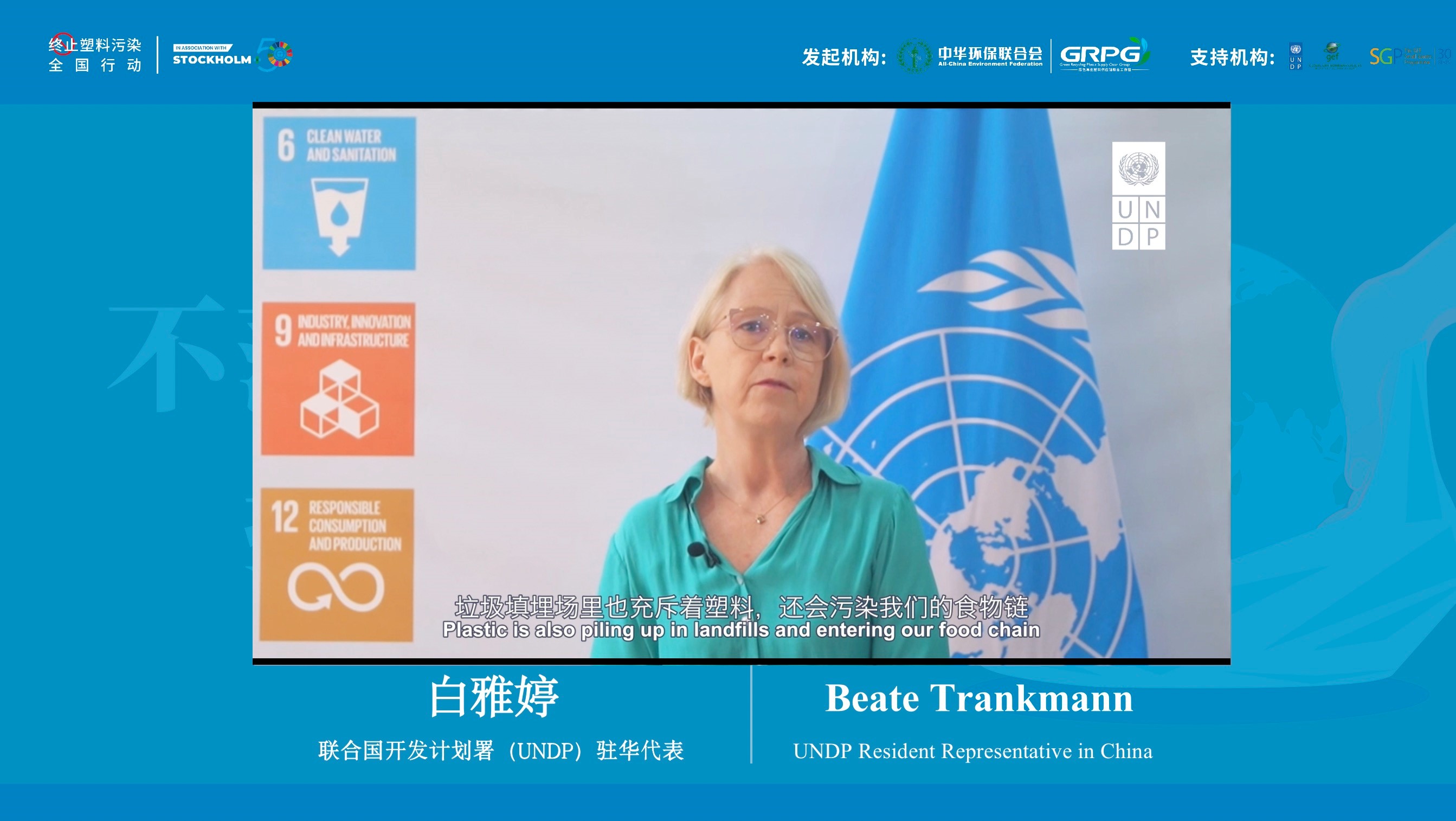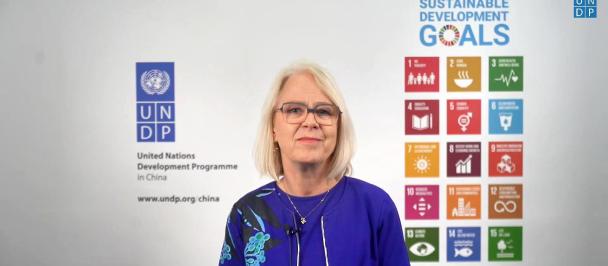Opening Remarks by Ms Beate Trankmann at the Launch of the National Campaign for Ending Plastic Pollution in China
June 6, 2022

Ms Beate Trankmann delivers opening remarks at the launch of the National Campaign on Ending Plastic Pollution in China
女士们,先生们,下午好!
我很高兴和你们一起参加今天的终止塑料污染全国行动的启动仪式。
Ladies and gentlemen, good afternoon.
Every minute that passes, the equivalent of one garbage truck worth of plastic is dumped into our oceans.
So by the time I finish speaking today, that’s five more garbage trucks of toxic plastic – often used only once – killing marine life and its habitats.
Plastic is also piling up in landfills and entering our food chain. Microplastics have now been found in human blood, raising our risks of cancer and developmental disorders.
We are poisoning ourselves and the planet.
And we are only making it worse. Between 1950 and 2017, plastic production soared from 2 million, to 358 million tons. In another two decades, this $522 billion industry is expected to double in capacity.
Not only is this a death sentence for the environment, but also a catastrophe for our climate:
In 2015, plastics released 1.7 gigatonnes of carbon dioxide. That’s set to more than triple by 2050, to about 6.6 gigatonnes – 15 percent of the global carbon budget to keep within safe limits.
If plastic is not curbed, it may derail the Sustainable Development Goals as a whole.
Ecosystem breakdown due to climate change, biodiversity loss and pollution, including plastic, means we are unlikely to meet those critical goals – to end poverty and protect the planet. As it currently stands, we are destroying the only home we have!
So, UNDP is committed to helping countries to manage plastic waste, and reduce plastic use. Since 2019, our projects in Vietnam, Maldives, the Philippines and Sri Lanka interviewed waste pickers and waste management companies to help policymakers better understand behaviors within the plastics system, and change approaches to waste disposal.
In China, UNDP worked with UNICEF to map the domestic policy environment on plastic recycling, as well as China’s recycling technology and capacity. Our research helped investigate whether existing plastic waste could be converted to high value products that contribute to social good.
Through the GEF Small Grants Programme, we also support the Plastics Innovation Project, which helps countries develop initiatives that tackle plastic both at source and post-consumption.
In China, the project supports the National Plastics Pollution campaign that we are launching today. In addition, it facilitated the preparation of a report on China's plastic industry and plastic waste pollution, as well as best practices from across the supply chain, that we will also be introducing today.
Ridding the earth of plastic waste and ending our dependence on plastic is complicated... But not impossible.
Today’s campaign launch is an important step to spur action!
Everyone can join in, with simple habits to cut our plastic footprint, everyday. For example, decline disposable cutlery or plastic straws. Bring re-usable bags for shopping. Carry a re-usable water bottle – or even a collapsible cup for coffee to go! And support local businesses that reduce, re-use and recycle plastic, too.
UNDP stands ready to offer our technical and convening support, to galvanize commitment from governments, businesses, civil society and individuals and advise on policies and practices to reduce plastic pollution through avoidance, reusing and recycling both in production and consumption.
I thank the All-China Environment Federation, the Green and Recycled Plastic Supply Chain, and all other partners for organizing this national campaign. I hope it can begin making an impact as soon as possible, and receive backing at the highest levels, to make that happen.
We have Only One Planet.
Let’s not drown our only home, in plastic. Instead, let’s work together towards a healthier future, for people and the planet.
Xie Xie!

 Locations
Locations
